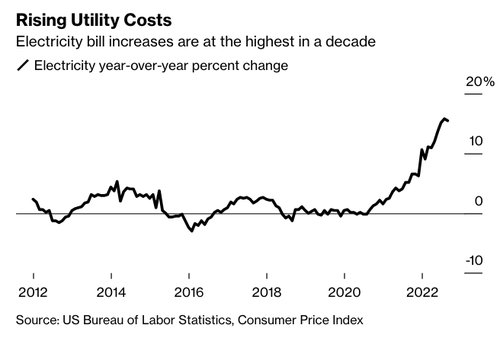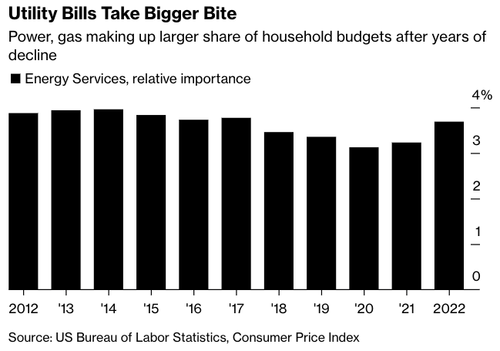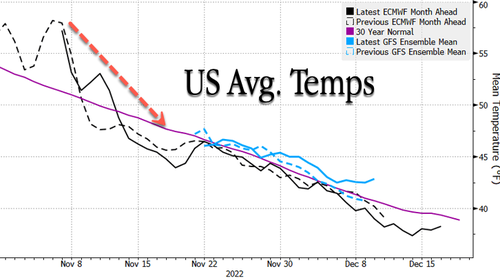"I want energy that's affordable for me ... I'll vote for whoever I truly believe will make a change." Renewable energy is driving up electricity prices!
By Tyler Durden: Utility companies are increasing electricity prices for American households ahead of the heating season. Some households take on debt to cover their power bills, while millions cannot pay. High electricity bills will be yet another uncomfortable political pain point for the Biden administration, according to Bloomberg.
Ahead of the US midterm elections, we outlined in several pieces that rising commodity prices are forcing utility companies to negotiate power contracts with customers higher.
Readers may recall we recently titled a note, "Your Next Pain Will Be Soaring Electricity Costs As Energy Crisis Comes To America." A gubernatorial debate in California not too long ago focused on skyrocketing electricity bills. Across the country, in Maine, politicians argued whether renewable energy is driving up electricity prices. A New York Republican candidate for governor pitched a move for the state to reverse a ban on oil and natural gas drilling to secure energy.
Discussions about power bills across the country come as at least 20 million households -- or about 1 in 6 American homes -- are behind on their utility bills. This winter's energy supply crunch could increase power bills and devastate households.
And it's not just rising power bills households are contending with --it's also rising prices for everything from food, shelter, and gas at the pump -- and this will influence how Americans vote on Tuesday.
The latest POLITICO/Morning Consult poll, which traditionally tends to spin topics to the hard left, shows a whopping 90% of Americans now rate inflation and economic turmoil as their primary concern ahead of elections.
"People are fed up," Tom Content, executive director of Citizens Utility Board of Wisconsin, an energy-advocacy group, told Bloomberg.

Luckily, warmer temperatures across the US delayed heating demand, though weather forecasts point to the average temperature dropping towards a 30-year mean by mid-month. This means heating demand will soon rise, and so will power bills.
Unlike in Europe, US lawmakers have yet to offer widespread utility-bill subsidies as discontent about overall inflation continues to grow.
Mark Wolfe, executive director of the National Energy Assistance Directors Association, said there's a possibility that lawmakers could offer subsidies, but it's difficult to read households because there are limited questionairs by US polling firms that ask about power bills.
Wolfe doesn't believe the Biden administration is at the point of offering subsides or intervening in power markets to protect consumers from soaring rates, though he said, "there's no reason it can't happen."
Bloomberg noted important swing states for the midterm elections are experiencing a dramatic rise in power bills and overall inflation. This could be an issue for Democrats come tomorrow as Americans will vote with their empty wallets as many can barely afford to pay bills after 18 months of negative real wage growth, collapsing savings, and mounting credit card debt.

Maria Beltran, 50, a Milwaukee resident, who lives on a fixed income, said her monthly electricity bill doubled in the past year. She spends her days as a volunteer community organizer to boost awareness about the inflation crisis.
"I want energy that's affordable for me," Beltran said. "I'll vote for whoever I truly believe will make a change."
Beltran's concerns are seen across the country. No matter the state, Republican political ads, whether on small signs on the side of the road, on giant billboards, or even on television, have bashed Democrats for stoking inflation, resulting in a cost-of-living crisis.
"Rising prices in general are an issue for voters for this midterm election, whether it is related to utility bills or higher gas prices," said Mark Baldassare, chief executive officer and polling expert at the Public Policy Institute of California, a nonpartisan think tank.
Tens of millions of lower-income families are being squeezed and are quickly running out of discretionary income. They're tapped out, and many are becoming increasingly frustrated with Democrats. This discontent may continue through the 2024 presidential elections.


No comments:
Post a Comment